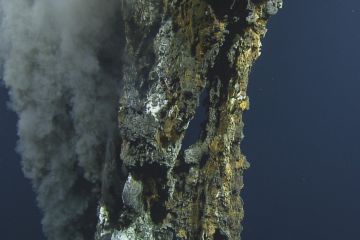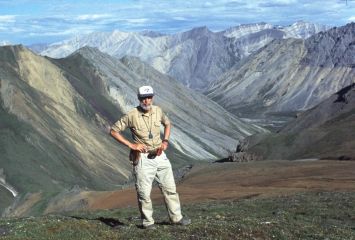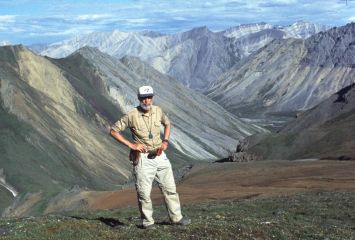Upcycling lives
- Rachel Goldsworthy
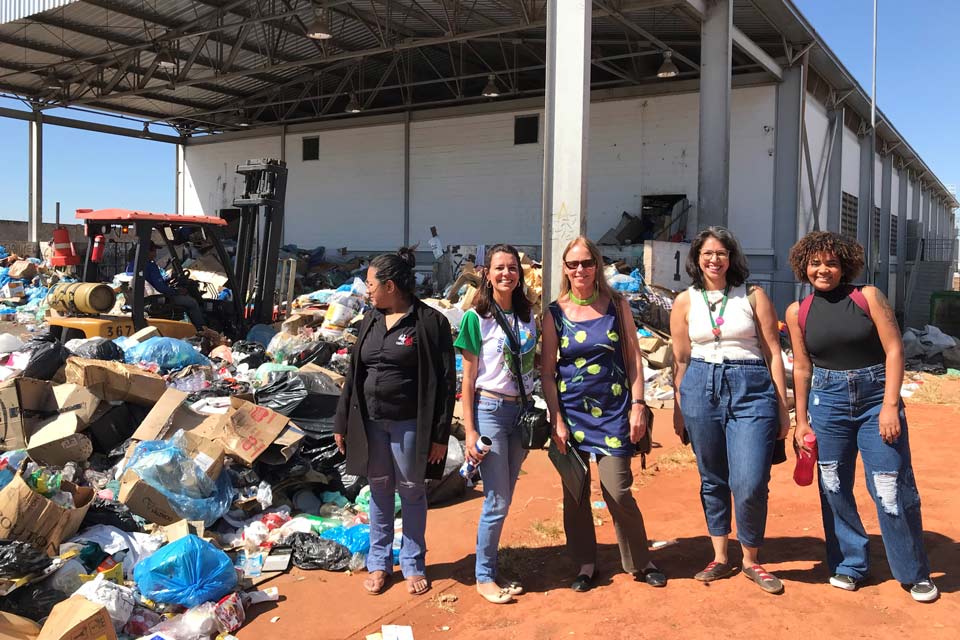
For Brazilian waste pickers, keeping recyclables out of the waste stream and earning a living are important—but not enough. University of Victoria geography professor Jutta Gutberlet feels the same way.
Over the past two decades, she and her team at the Community-Based Research Lab at UVic, along with other researchers, have been helping recyclers help themselves—to improve working conditions, form co-operatives and associations, and advance social movements.
“When I moved from Germany to Brazil with my parents when I was 12,” Gutberlet says, “I met a completely different people, culture, as well as historic, social and economic context. I came from a small town and then lived in São Paulo, a city of several million people already at the time. In my everyday life I saw poverty, racial discrimination and bullying firsthand, which helped make me more aware of these social problems. On my way to school I could see poverty and exclusion and kids who had less than I.”
I think these experiences have shaped me profoundly, allowing me to see these challenges. My position as a professor gives me the ability to do something about it.”
—UVic geography professor Jutta Gutberlet
Gutberlet’s current success story is Unicata, a pioneering university program that provides education, networking and university-level credentials to advance the waste pickers’ careers and industry effectiveness.
Under Gutberlet’s leadership, Unicata is supported by UVic and four Brazilian universities, as well as other international post-secondary institutions and social and labour organizations. And throughout, the catadoras and catadores—the waste pickers themselves—have been the keystones.
“Design, content and delivery—all the way along, Unicata has been developed with and for the waste pickers,” Gutberlet says. “It’s team-taught by academics and waste pickers.”
‘Transformative work’
The program is hefty, with each of the six 14-week modules including 56 hours of classroom time plus a field visit. The modules focus on a range of topics, from waste picking history, gender and social issues to public policy and climate and sustainability.
Fifty-five students in São Paulo and Brasília completed the first module last year and received certificates jointly issued by UVic, Federal University of ABC, the University of São Paulo, University of Brasília and Instituto Federal Brasília, at an annual waste pickers conference attended by government ministers and President Luiz Inacio Lula da Silva. The students also presented their research—one even created a theatre production.
“The waste pickers are so vocal, so proud of what they do. They see,” says Gutberlet, “that it is transformative work.”
And transformative for the individuals themselves, whose career path has long been stigmatized.
Gutberlet's current role as a world leader in this field began in 2005 with a seven-year project funded by the Canadian International Development Agency.
“That project was key to waste pickers being able to build and expand their capacity,” says Gutberlet, who continued to work with them to identify what they needed in occupational health, education, networking and access to policy-makers. Later, Gutberlet received the 2018 UVic Provost’s Engaged Scholar Award, which led to Unicata.
Unicata’s impact
Unicata is getting noticed globally. A faculty member at the University of Natural Resources and Life Sciences in Vienna, Austria has agreed to share their course materials on electronic waste to enhance Unicata’s curriculum and advance the recycling industry even more.
Several UVic students are also expanding the research, applications and knowledge mobilization. Master’s student Bita Ebrahimi, for example, is in Brazil now creating a virtual reality simulation to show schools and politicians what’s involved in waste pickers’ work. Undergraduate Graham Mercier has created a storymap for Unicata.
And the real lessons, as is true so often in life, come from Unicata students themselves.
Pedro, a self-employed waste picker in São Paulo, says, “Let’s value ourselves. My father used to tell me to study, otherwise I would pick up bottles and cans—and today at the University of Waste Pickers, I study to pick up cans and bottles.”
Dona Olinda is a waste picker who also works in São Paulo. “Selective waste collection,” she says, “is raw material for social inclusion.”
- Unicata reflects UVic’s commitment to the United Nations Sustainable Development Goals including climate action and sustainable cities and communities.
Photos
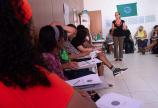
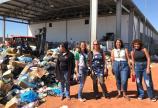
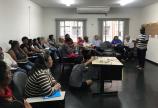

In this story
Keywords: international, research, climate, community, sustainability, geography
People: Jutta Gutberlet

